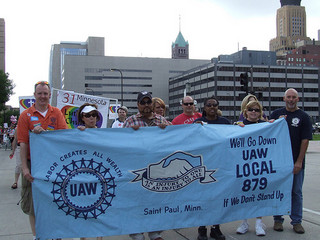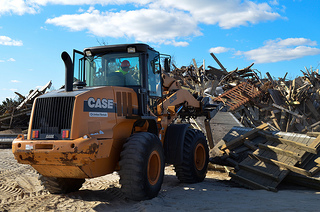U.S. Automotive Factories Face Pressure from Overseas to Unionize

As reported earlier, a non-union Nissan plant in Mississippi is under pressure from the United Auto Workers union (UAW) is orchestrating picketers at Nissan dealerships in Brazil, just as the country, travel agencies, and authorities are trying to stage a positive environment for the upcoming Olympic games. Now, another automotive factory, the Volkswagen facility in Chattanooga, Tennessee is facing similar pressure to unionize IG Metall union in Germany. Workers in both U.S. factories have been largely opposed to union efforts in their facilities. The non-union U.S. automotive manufacturing facilities, particularly in the southern U.S. are the most cost-effective auto manufacturing sites in the world, largely due to the lack of labor unions and partly due to the low value of the U.S. dollar currently. Union workers in Germany and other industrialized nations want to force U.S. auto workers to form unions to make the cost of manufacturing more equal. Otherwise, automakers will simply give the work to non-union factories to reduce production costs.
The Mercedes Daimler factory in Vance, Alabama is under similar pressures. So far, workers in the southern U.S. auto factories have resisted pressures to form unions, but the UAW is trying a new tactic. They are now trying to pressure the management of these facilities to create a union without requiring a vote by workers on the matter. It is still unclear whether or not such union formation is legal in the U.S.
Workers councils are common in Germany, which is what some of the U.S. automating facilities might turn to if the UAW’s pressure from overseas is successful. These councils are generally made up of a group of both white-collar and blue-collar workers. According to the latest worker polls, a vote on unionizing these southern facilities would almost certainly end up with workers voting against forming a union. These workers fear that unions would drive away good paying jobs, as was the case with the unionized Detroit automakers.








